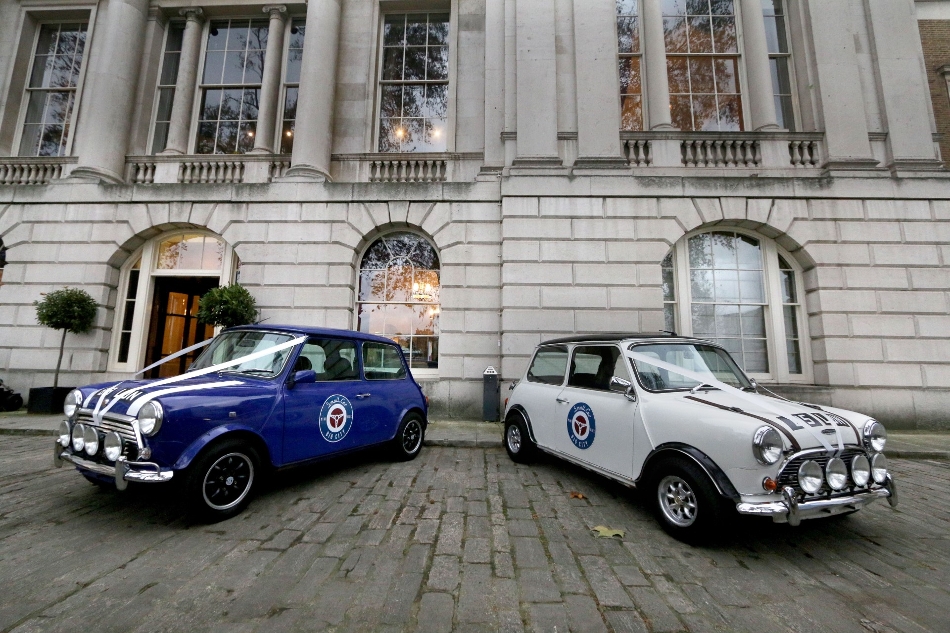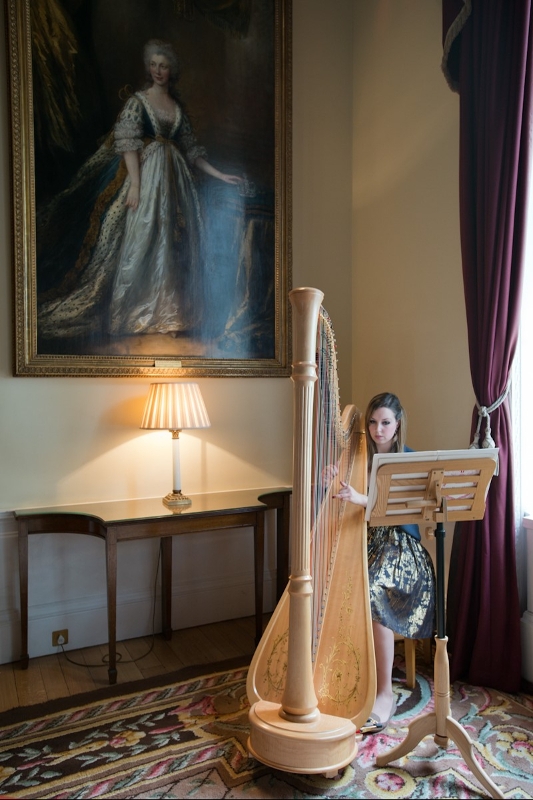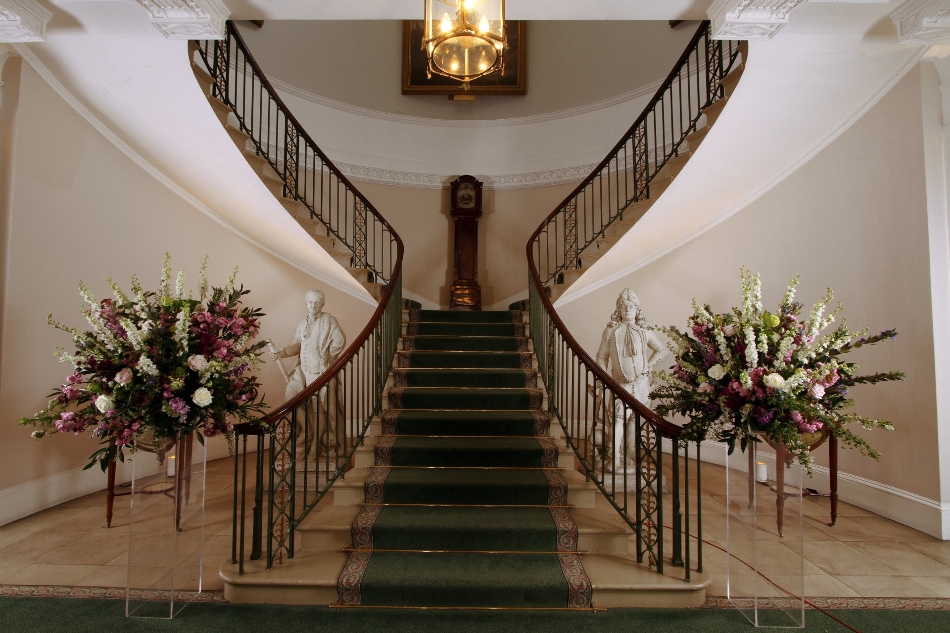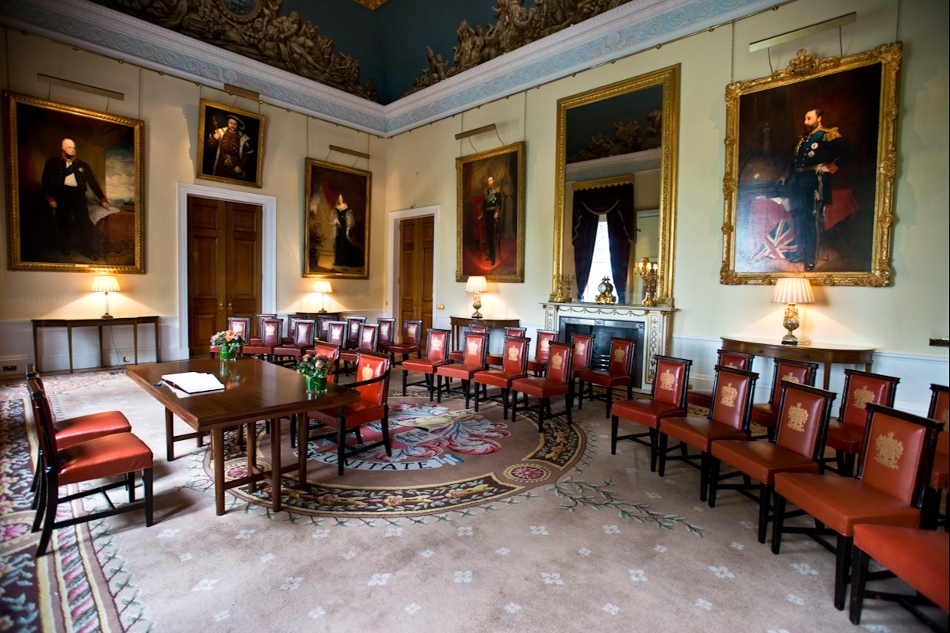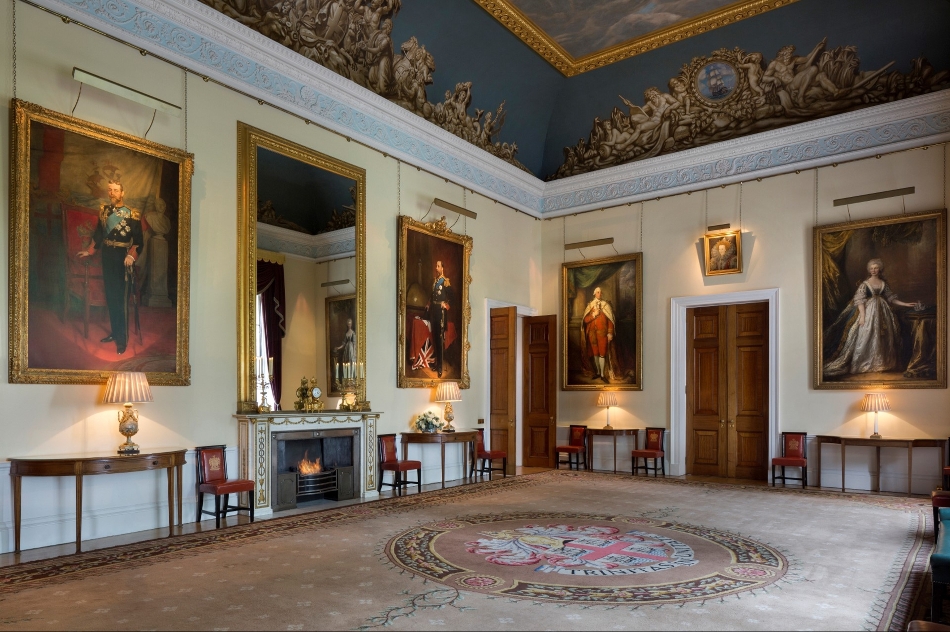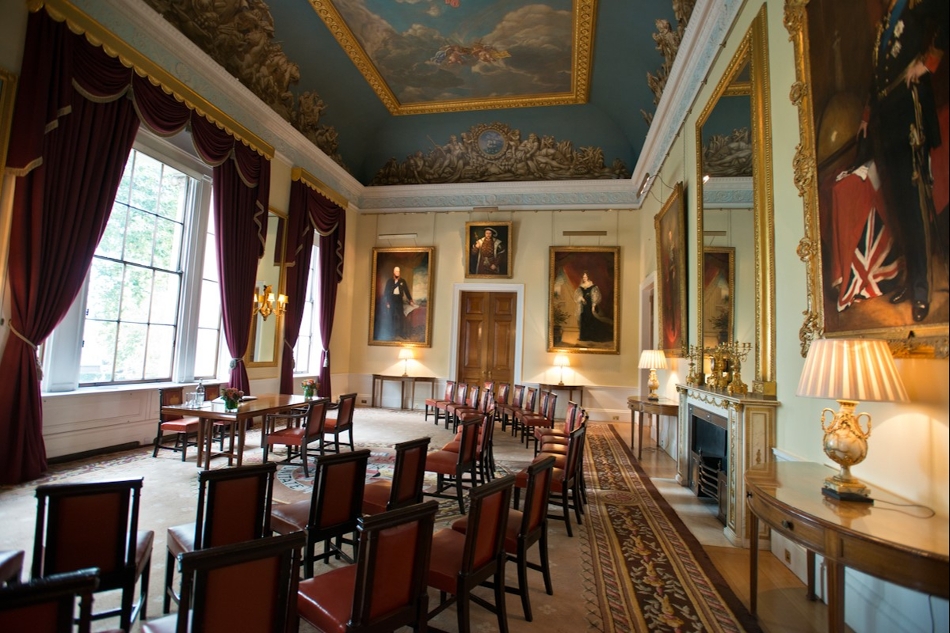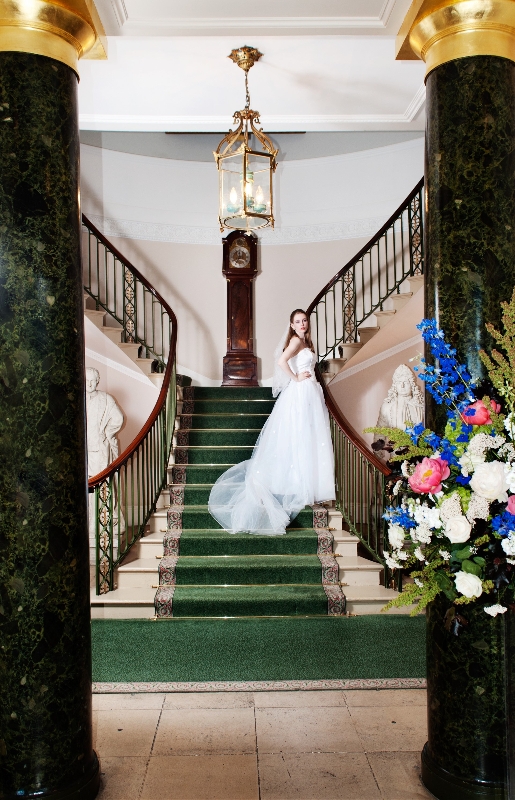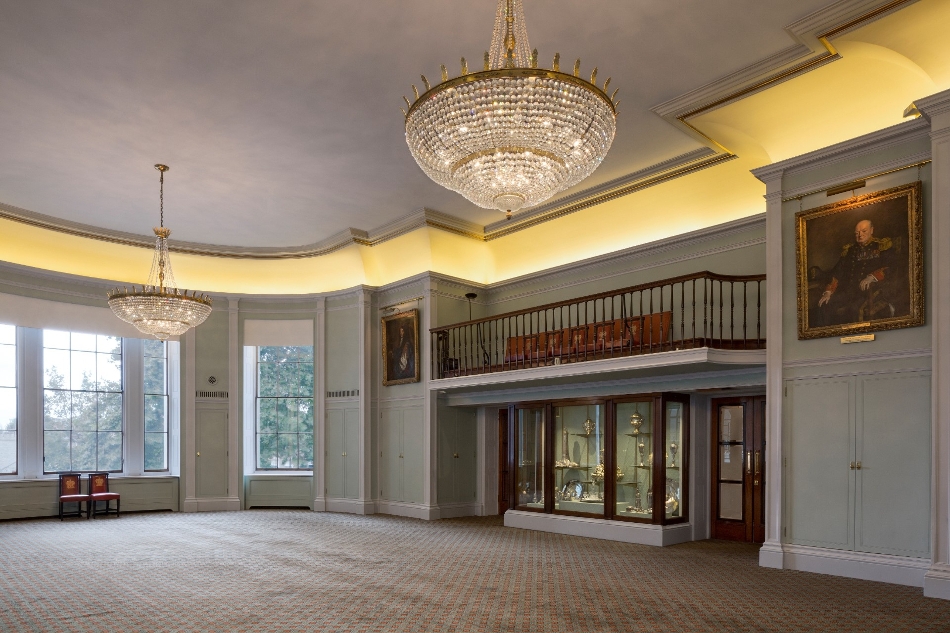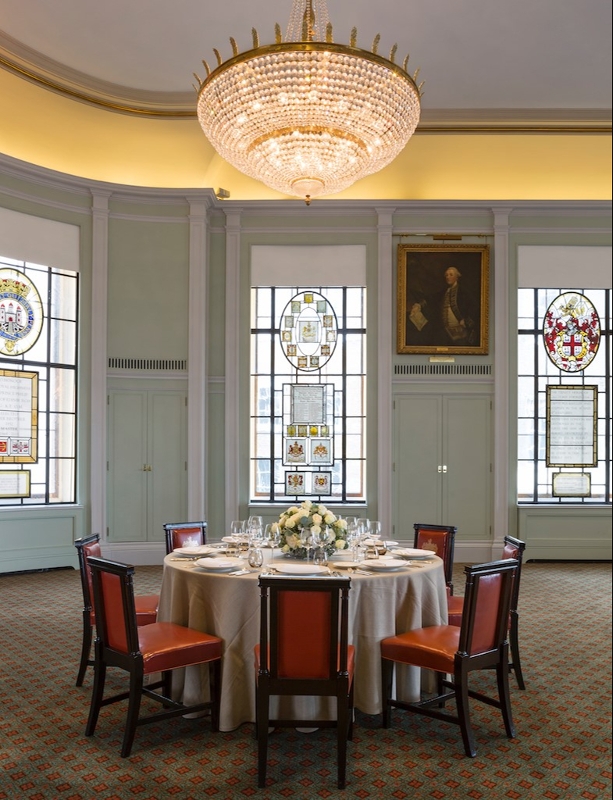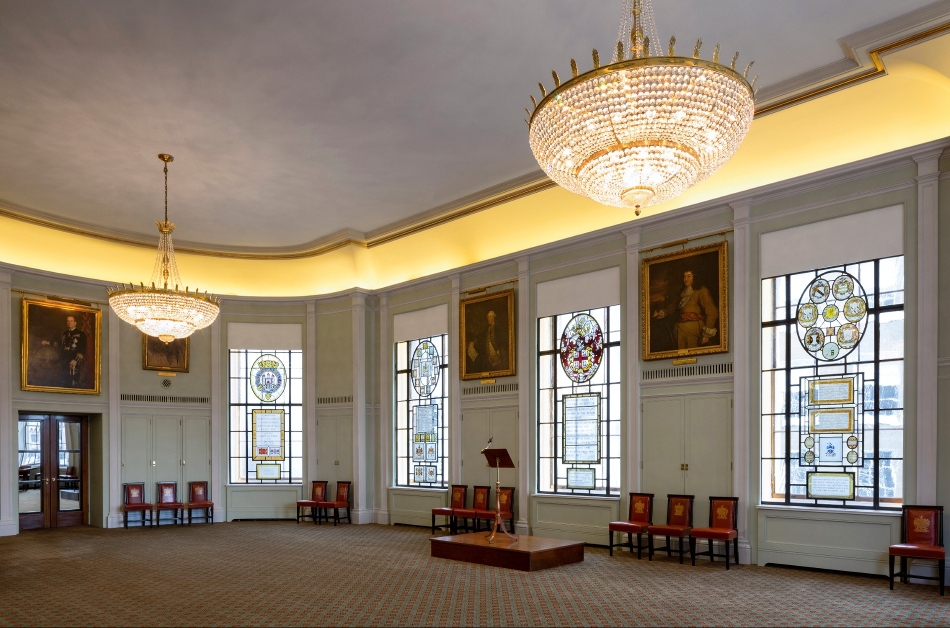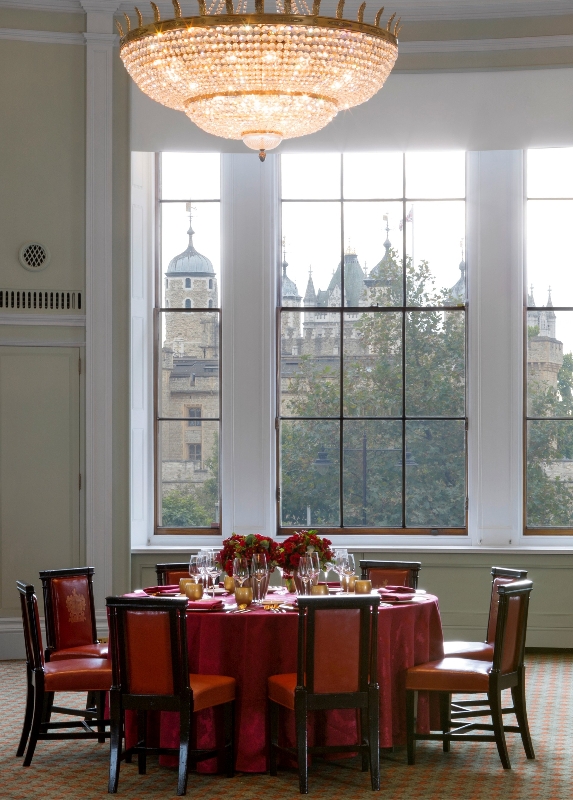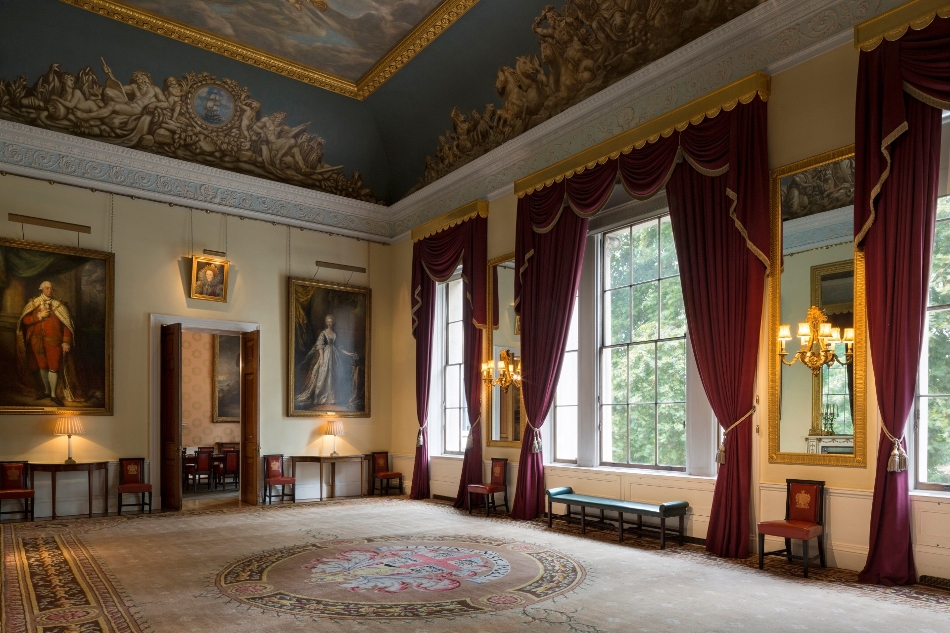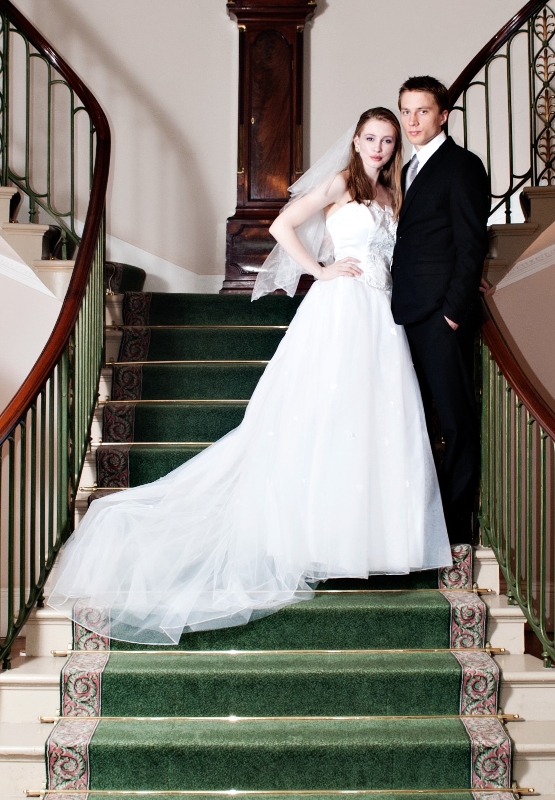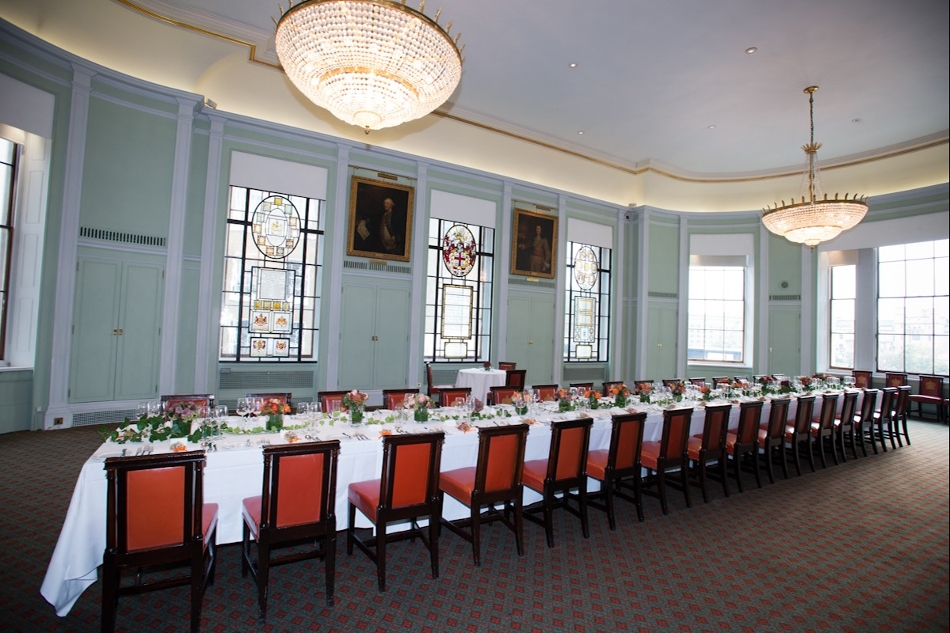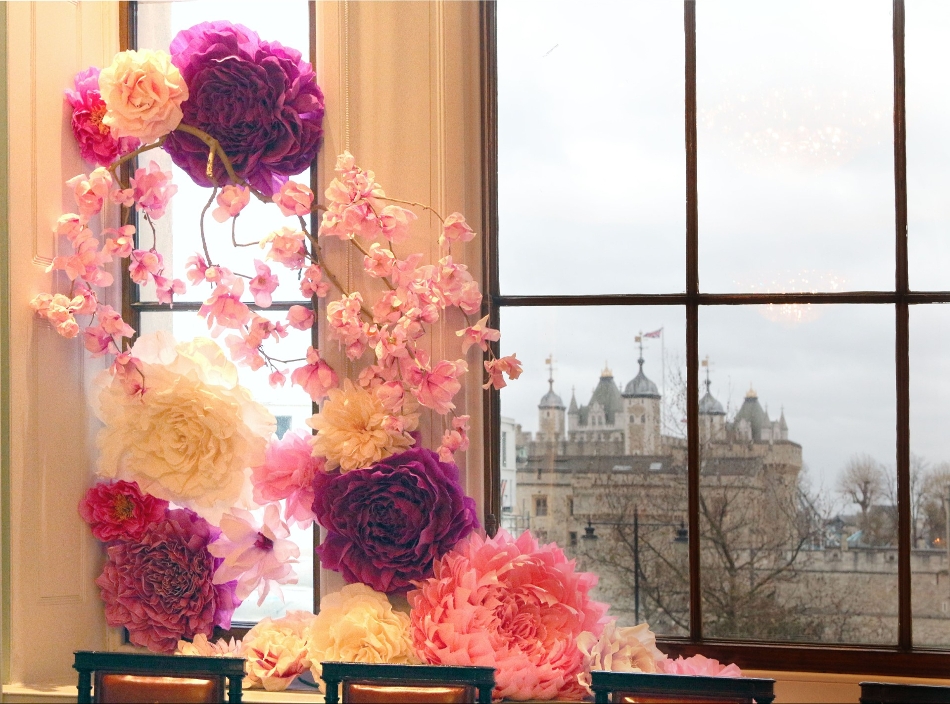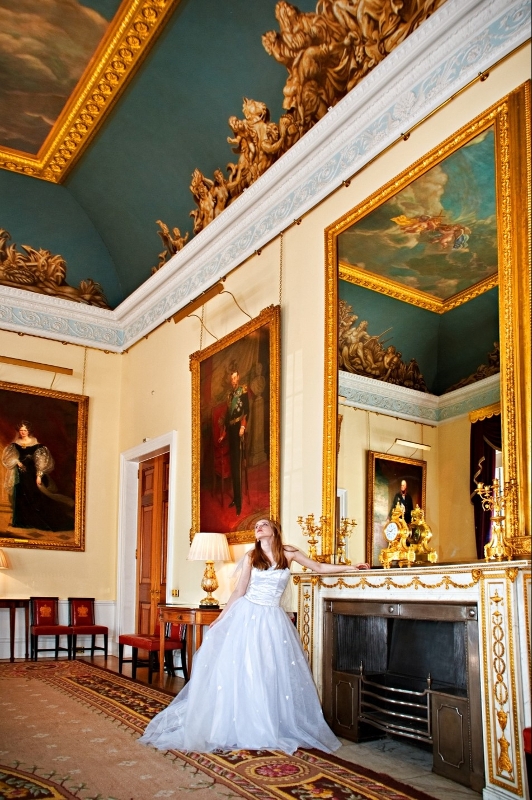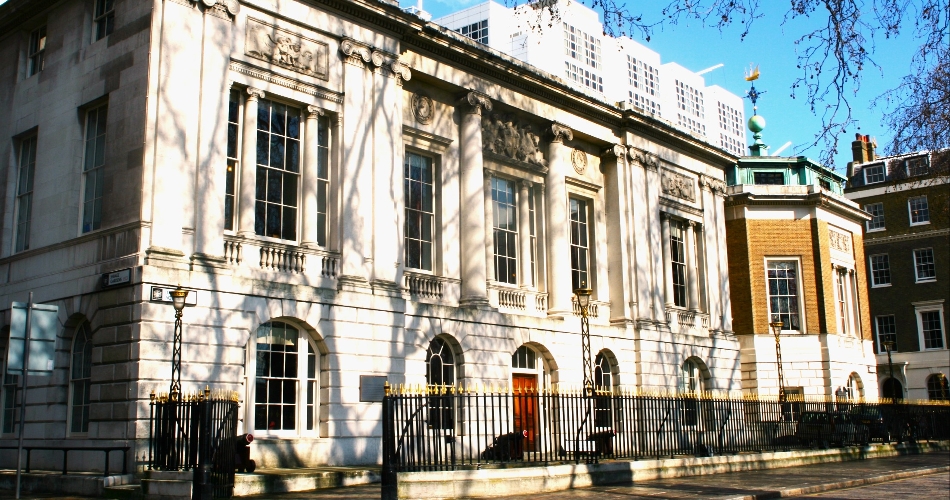INTERESTING HISTORICAL FACTS RELATING TO TRINITY HOUSE ...read more
Trinity House is a Grade I listed building located on Tower Hill with direct views of the Tower of London. It is home to the Corporation of Trinity House, the UK’s largest maritime charity wholly funded by its endowments, spending @£4m each year on its charitable activities including the welfare of mariners, education and training, and the promotion of safety at sea. It is also a Deep Sea Pilotage Authority. Today it serves the mariner as the General Lighthouse Authority (GLA) for England, Wales and the Channel Islands with responsibility for nearly 600 aids to navigation, from traditional aids such as lighthouses to the latest satellite navigation technology.
This chronicle began in 1514 when a young Henry VIII granted the charitable guild of mariners a Royal Charter to regulate the water traffic on the River Thames, their powers later extended by Elizabeth 1 to include the sea-markers around the English coastline.
Prior to its address on Tower Hill, the Fraternity (of Trinity House) was located in Deptford, Ratcliffe, and then Water Lane, this last location being destroyed in the Great Fire of London in 1666 and by fire again in 1715. The current building was constructed between 1794 – 1996 by Samuel Wyatt with Prime Minister, William Pitt the Younger, laying the foundation stone on 12th September, 1793. It was officially opened By King George III in 1796. In addition:
• The interiors of were gutted by an incendiary bomb which lodged in the stairwell of the building in 1940 during WWII – only the exterior remained intact. Just a few nights before, valuable paintings and artefacts had been removed from safekeeping in the Tower and were in transit at Trinity House prior to their relocation to a safe house in the country….thus most of these were destroyed.
• The interiors of Trinity House were faithfully reproduced, largely from photographs in the edition, by Sir Albert E Richardson. At this time, a new Wing was added which today contains the Library, Reading, Luncheon and Pepys Rooms, and corporate offices. The building was re-opened by The Queen on Trafalgar Day, 21st October, 1953 – it was one of her earliest official duties in that capacity. Country Life, 26th April, 1919
• The Court Room is distinguished by a deep cove in the ceiling painted with opulent central trompe l’oeil panels by J F Rigaud. These were restored in 1840 by a then little-known artist called William Holman Hunt (one of the famed ‘Pre-Raphaelite painters’) who referred to the project in his diary as….’fine fun’ - he was paid £30, which allowed him to ‘clear off my back accounts’. The ceiling was re-produced in 1953 by Glynn Jones on canvas panels and pasted to the ceiling.
• The distinctive portrait of the bust of Queen Elizabeth I, which hangs over the doorway between the Court Room and the Luncheon Room, is original and ostensibly by (the circle of) medieval painter, George Gower. It is believed that the original was full-length but that one of the Dukes of Bedford, the original owners, decided it took up too much space and cut out just the head and shoulders, reducing and reframing it so it could be ‘put to better use’. Six full-length portraits, some by Gainsborough Dupont, are of George III, Queen Charlotte, William IV, Queen Adelaide, Edward VII and George V. Edward VII was an ‘Elder Brother’ for over 40 years. The carpet in the Court Room depicting the Arms of the Corporation – granted by Royal Charter of Queen Elizabeth I in 1573 - is one of the largest single-loom carpets in the UK, the largest being at Windsor Castle. It took ten weavers four months to complete and, at 850lbs in weight, had to be lifted by crane through the central window to its first-floor location.
• The mirror in the adjoining Luncheon Room, hung with more full-length portraits of former Masters of Trinity House, is the only surviving one from the original house – the other being destroyed in a lorry crash in 1939 while en route to the Tower for war-time storage.
• The large painting in the Quarterdeck corridor of 22 ‘Elder Brethren’ by Gainsborough Dupont (1794) had a two-foot additional panel added to accommodate one extra Brother who was abroad at the time of the painting and ‘felt aggrieved’ to be left out. He is pictured wigless (unlike the others), for some reason never established.
• The brass bell from the Royal Yacht Britannia was presented to Trinity House when the Yacht was decommissioned in 1997 and is perfectly maintained and in working order in the ‘Quarterdeck’ corridors that lead to the main function rooms.
• The Reading Room, adjoining The Library, contains the famous painting of Churchill and Roosevelt in discussion at the 1941 Atlantic Conference on board HMS Prince of Wales by Raymond R Wilson. This pose of the two seated war-time leaders is replicated in bronze on a bench in London’s New Bond Street.
• It is not apparent on entering The Library why it is so-called but numerous maritime books are concealed behind doors forming part of the scheme of panelling. The room also contains a case displaying valuable dress silver, including an ornate silver gilt (wine cooler) centre piece, surmounted by a figure of Britannia, presented to Trinity House by William IV. On the opposite side of the room, panels of enamelled and stained glass depict the names and arms of former Masters and Wardens going back to the 1570’s and taken from the old hall at Deptford when it was demolished in 1788.
TRINITY HOUSE – HERITAGE VENUE TIPS AND IDEAS... ...read more
Zoe Turner, Head of Events at Trinity House, offers some tips and ideas to planning an event at a heritage venue...
• Inherent interest: A venue with an illustrious historic pedigree and a reputation for service will invariably have an interesting story to tell which is a great conversation starter, especially if guests are unfamiliar with each other... find out if, as at Trinity House, an authorised expert can be organised to brief guests on the venue’s unique history
• Location: Guests will be impressed with a prestigious address and location that incorporates historic themes or landmarks…a clear view of a landmark, such as the Tower of London from Trinity House, will wow guests on arrival.
• Inherent theme: Themed weddings often require additional expenditure on the décor so costs can be saved if this is inherent in the venue itself… a strong maritime theme is pervasive throughout Trinity House with over-sized ships models and the Brass Bell of the Royal Yacht Britannia
• Inherent extras: A few heritage venues, such as Trinity House, offer guests use of, or access to, museum quality treasures and artefacts such as presentation table silver etc - ask for free use of Trinity House’s impressive ceremonial sword to cut a cake or open a bottle of champagne. Most unusually, the venue hire charges at Trinity House includes polished quality tables and gold-crested red leather backed chairs.
• Preferred Suppliers: Many heritage venues provide a list of preferred caterers and event support services...always select one. These companies know the venue well and paying a little extra, if needed, for familiarity with the venue frequently ends up being cheaper than costly last-minute disasters. It is always a good idea to inspect the view and setting at the same time as the proposed event so optimum lighting requirements are sorted.
• Sustainability: Although there are sometimes restrictions placed on heritage buildings that make adopting certain sustainable practices difficult (mandatory incorporation of existing single pane windows), ask what the venue is doing to comply with and adopt sustainably-oriented policies… Trinity House encourages the selection of caterers who manage waste responsibly i.e. delivering food waste to registered charities or industrial agencies who employ ‘anaerobic digestion process’ to convert waste into biofuel or fertilisers.
SUSTAINABILITY AND VALUE AT THE CORE OF TRINITY HOUSE & BOX CLEVER EVENTS WEDDING PACKAGE ...read more
Trinity House and one of its preferred caterers, Box Clever Events, present a quality-focused, value-oriented two-hour Civil Service wedding package embracing eco-principles of using primarily local products and no palm oil.
Bridal parties seeking an intimate, pared-down ceremony without compromising on luxury or environmental care are invited to preview the package which predominantly comprises:
• Exclusive use of Trinity House (primarily the Library and/or Court Rooms) for two hours for up to 130 seated
• Choice of four Box Clever canapes per person at £15 per person excluding VAT (plus £125 delivery) from a wide selection
• Two serving staff plus tables, leather crested chairs, glasses and serving trays
• No corkage or other charges applied to alcohol and other beverages supplied by client
Exclusive use of Trinity House is available in 2024 for a two-hour Civil Service Wedding at £2,100 (weekdays) and £2,900 (weekends), excluding 20% VAT and conditional to a 5pm finishing time.
Sample canapes from Box Clover Events include ‘Truffled Goats Cheese Involtini; Mini English Crumpets with Crab and Dill Mayonnaise; Mini Pastrami and Mustard Bagels; Spiced Lamb and Fennel Sausage Rolls; Teriyaki Chicken Skewers with Spring Onions; Rare Roast Beef Skewers with Horseradish and Watercress; Tuna Tartare with Wasabi Mayo and Keta’….
Head of Events at Trinity House, Zoe Turner, comments: ‘We are delighted to be collaborating with Box Clover Events as we share a commitment to providing quality items and services that focus on sustainability and efficient waste management. Like Trinity House, they incorporate the three ‘R’s – Reduce, Reuse and Recycle - into their operations as much as possible. We also approve of their mantra to plant a tree for every order secured!’
For more information on Box Clever Events: www.boxcleverevents.co.uk
STRINGS ENSEMBLE COLLABORATION FROM TRINITY HOUSE ...read more
London, Tower Hill – Trinity House, the working home of the General Lighthouse Authority, is collaborating with the talented AMALIA STRINGS to offer wedding and corporate bookers an exceptional package. When engaging the string ensemble as a duo at £320, a trio at £420 or a quartet at £520, the second hour of the live performance will be offered FREE when booked to participate at an event at the House. This pricing includes VAT, transport of musicians and instruments to the House, and is available to potential clients of Trinity House only. If the booking is for more than two hours, any additional hour after the second FREE hour will be charged at £50, £60 or £80 respectively.
Covering genres and styles from Mozart to The Beatles, AMALIA STRINGS comprise four talented musicians whose love of performing has brought them together. Vicky is active both as an orchestral player and soloist and has performed at The Royal Albert Hall, Birmingham Symphony Hall and The Royal Festival Hall – she is currently Development Events Manager at the London Philharmonic Orchestra. David graduated with honours from the Royal College of Music and has collaborated with numerous professional string ensembles including the Chamber Orchestra of London. After studying at the Royal Academy of Music, Alison has performed at many high-profile events including the Wieniawski Festival in Poland, Britten’s Death in Venice 2007 Aldeburgh Festival, and the Rock meets Classic 2012 Tour with Ian Gillan. Playing the cello, Amalia Strings co-founder Mike is an acclaimed soloist, chamber musician and teacher and has played with many orchestras in the UK and across Europe, including the London Philharmonic Orchestra and the European Union Chamber Orchestra.
For more information on Amalia Strings, please visit: www.amaliastrings.com
To make a booking, please contact Zoe Turner at zoe.turner@trinityhouse.co.uk
